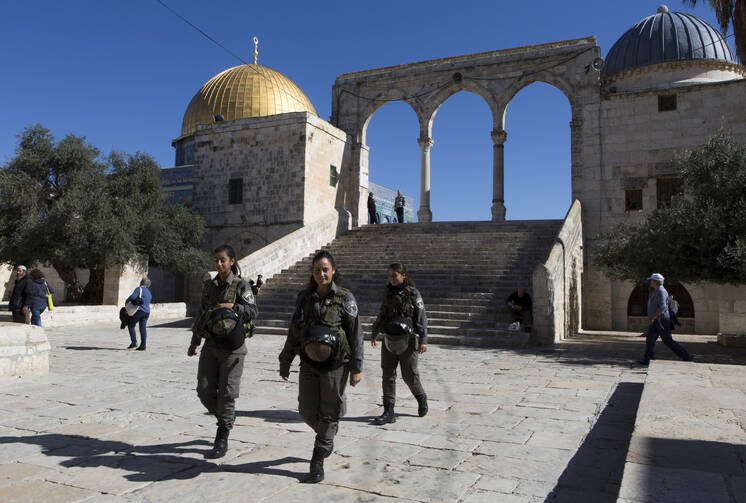Attachments to holy places should not be a cause of bloodshed, hatred or violence, said the Council of Religious Institutions of the Holy Land.
Council members, who include Christian, Jewish and Muslim leaders, said in a statement Nov. 9 that they were concerned about increased violence around the site in the Old City known as Haram al-Sharif by Muslims and that Jews refer to as the Temple Mount.
"(We) lament that the site ... has become a major focus of the conflict in the Holy Land," the statement said. "Holy places must remain dedicated to prayer and worship only."
"Holy places are there for believers to draw inspiration to strengthen their acceptance and love of the Almighty and all his creatures, from all religions and all nationalities," it said.
The site is considered holy by Muslims as the location of Muhammad's journey to Jerusalem and the site of his ascent into heaven, and by Jews as the place where two biblical temples once stood. It is also revered by Christians as the site where Jesus surprised Jewish rabbis with his theological knowledge and the place where he confronted the corruption of those who used the temple as a place of commerce.
Tensions have risen since late October at the site. Israel in a rare moved closed the Al Aqsa Mosque for one day after the police shooting of a Palestinian suspected of having shot a rabbi who espoused more Jewish rights at the site, where Jews currently can gather but not pray.
"The integrity and current status quo of each holy place needs to be respected. Each religious community should treat the Holy Sites of the other faiths in a manner that respects their independence," the religious leaders said. "Any act of desecration, aggression or harm against holy sites must be halted and strongly condemned."
The religious leaders expressed deep concern that the political conflict would turn into a violent religious conflict.
"In that case, all of us are losers -- except extremists on all sides," they said.
"We work to secure open access to the Old City of Jerusalem for all communities. All believers should have safe and free access to the holy sites of their religious traditions," the statement said.
The Council of Religious Institutions of the Holy Land consists of the heads of the Catholic, Orthodox and Christian churches, the Chief Rabbinate of Israel and the Ministry of Islamic Waqf at the Palestinian Authority.








